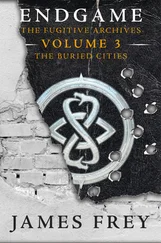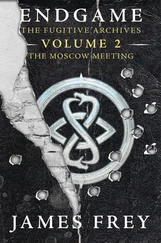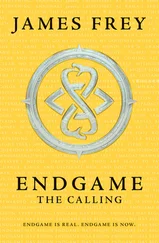When I arrived home, I went directly to the dining table, where my wife and three children were waiting for me to have our nightly family meal. My wife could see I was preoccupied, which I rarely am, and tried to ask me why, but I didn’t feel Ben Zion was an appropriate topic of conversation, and didn’t want to discuss him or his family in front of the children. When dinner was over, I excused myself and went to my study, where I keep a small library of Jewish scriptures and sacred texts, which I use in my own continuing study, refer to when I work on one of my sermons at home, or share and use with my family, particularly during holidays and High Holy Days. I walked over to the Babylonian Talmud, which alone takes up several shelves. The copy I own is comprised of sixty-four tractates, totaling 2,711 pages, printed in twenty-four folio volumes. The cycle of Daf Yomi involves studying a single page of the Talmud every day, beginning on page one and continuing for 2,711 consecutive days. It was conceived by Rabbi Yehuda Meir Shapiro of Poland at the First World Congress of the World Agudath Israel, held in Vienna in 1923, which was the year 5684 on the Hebrew calendar, and the first cycle began on the first day of Rosh Hashanah that year. Each day, approximately 150,000 Jews around the world study, contemplate, and discuss the page, and there is a celebration at the end of each cycle called the Siyum HaShas. The most recent Siyum HaShas took place on March 1, 2005, known to us as the year 5766. The idea that someone could know the entire book, or even a single volume of it, was inconceivable, and frankly, quite ridiculous. I chose a volume at random and opened it. Its pages consist of the Mishnah, or Jewish law, printed in the middle of the page, with the Gemara directly below it. The Gemara is a commentary on the law and how it relates to the Torah, written by the Amoraim, a group of ancient rabbinical sages. The Tosafot, a series of commentaries by medieval rabbis, are printed on the outside margins of the page. This incredibly dense text, written in Hebrew, governs Orthodox Judaism. One could devote one’s entire life to the study of it, and many do, and not even begin to fully and completely comprehend and understand it, much less have it memorized, which, if even possible, would be a superhuman feat. I placed the volume back on the shelf and went and kissed each of my children goodnight. I returned to my study and I prayed. When my wife came into my study and asked me what was wrong, I told her that Ben Zion had been found, and I had spent the afternoon with him. Having been with me for so many years, she knew what that meant to me, and possibly to all of Judaism, and also the world. Instead of spending time together, as we did most evenings, she left me in prayer, and I prayed for several hours before going to sleep.
The next day I went to the synagogue, where most of my thoughts revolved around Ben, and I found my daily tasks and responsibilities, which I usually so thoroughly enjoyed, to be a tremendous burden. I tried to finish them as soon as possible, and went immediately to the hospital. When I arrived at Ben’s room, the young man who had been sitting near Ben’s bed, and who was still clutching his Bible, was standing outside the door. When I tried to go into the room, he stepped in front of me and said that Jacob was inside with Ben’s doctors and that he had been instructed not to allow anyone to enter. I told him that Ben had specifically asked me to return, and that I had been the family’s rabbi before their conversion, and that as far as I knew, I was still Ben’s rabbi because he had not converted to Christianity. The man told me he knew who I was, and that Jacob had told him not to allow me inside the room. I asked him his name and he told me it was Jeremiah. When I offered him my hand, he did not receive it.
We waited for a few minutes, and while Jeremiah was not physically imposing, something about him seemed off, as if he were very angry, very nervous, or very scared, or some combination of all of those emotions. He stood in front of the door, reading his Bible, and would occasionally either glare at me or nod to himself while saying Praise Jesus or Hallelujah Lord. When the door finally opened and several doctors stepped out of the room, one of them, a tall thin man who appeared to have some authority, walked over to me and addressed me. Rabbi Schiff?
Yes?
Dr. Wulf. Neurology attending.
Nice to meet you.
Ben is sedated right now. He’s had two severe seizures today. Last night, however, he both asked and authorized me to speak with you about his case.
Do you know more than you did yesterday?
We do. If you can come to my office, we can talk for a few minutes.
That would be great. Thank you.
We went to his office, which was crowded with papers, books, degrees on the walls, and a large number of family photos depicting him and a woman, I assumed his wife, and three young girls, I assumed his daughters, on vacations, at ball games, in front of a church. There was also a crucifix on the wall. He sat behind his desk and I sat across from him, and he spoke.
We’ve been working hard to diagnose Ben. It’s obvious that he’s been suffering from some form of seizure disorder, most likely as a result of his accident. Jacob came to me last night, and he told me about what Ben has been experiencing. That information made it very clear to us that he is suffering from temporal lobe epilepsy, and a rare and specific type, called ecstatic epilepsy. Ecstatic epilepsy is characterized by an aura, which is a feeling the patient has right before a seizure. The auras of someone with ecstatic epilepsy tend to be extreme, often involving sensory hallucinations, sometimes erotic sensations, and, more rarely, religious or spiritual experiences. It can be, and was in our case, difficult to diagnose because the onset of the seizure isn’t localized in a specific set point in the brain, which makes it difficult to track using EEGS, and because the experiences involved with the seizures are so profound, and pleasurable, that the patients don’t tell their doctors about them because they don’t want them treated and stopped. Both seem to be the case with Ben. I don’t know what he has spoken to you about, but he told Jacob he believed he was communicating with God. As I told Jacob, that’s actually normal given this diagnosis, but unfortunately, it is entirely a function, or rather a malfunction, of his brain. It is not real, as much as someone like you or Jacob or I would like it to be, and allowing it to continue should not be encouraged. We need to get Ben on a drug regimen and begin treating him.
I understand.
Has he spoken to you about his communications?
I don’t discuss conversations between me and members of my synagogue.
Even if it may affect their health?
I understand your position and your concerns, and if they come up with Ben, I will address them with him.
Thank you.
I stood and left and went back to Ben’s room, where his brother and Jeremiah were praying at his bedside. He was asleep, on his back, and looked as if he was at peace. Jacob looked up at me and I knew I was not welcome. Wanting to avoid an unnecessary confrontation, I decided it was best to leave. I said a prayer outside the door and went home.
After dinner I went to my study and turned on my computer and started researching epilepsy, and more specifically ecstatic epilepsy, on the internet, which I find a wonderful, though sometimes confusing and contradictory source of information. The diagnosis was perplexing to me. While Ben had clearly suffered major trauma to his head and body, and the epilepsy might have been a direct result of said trauma, if there wasn’t a spiritual element, a true spiritual element to what he was experiencing, there was no way he would know the religious books he claimed to know. He had also, since before he was born, depending on who you believed, shown signs of messianic potential, which had grown stronger and more absolute following his birth and his childhood. On the other hand, I did not know if he actually knew the books, and he himself had stated that the words of God meant nothing in the face of science, and that he might well be a delusional fool. I found myself, until I knew more and spent more time with him and had more time for reflection and prayer, in the same place I was with God, which is a place of faith. I either had faith in Ben or I didn’t. I either believed him, and in him, or I didn’t.
Читать дальше












